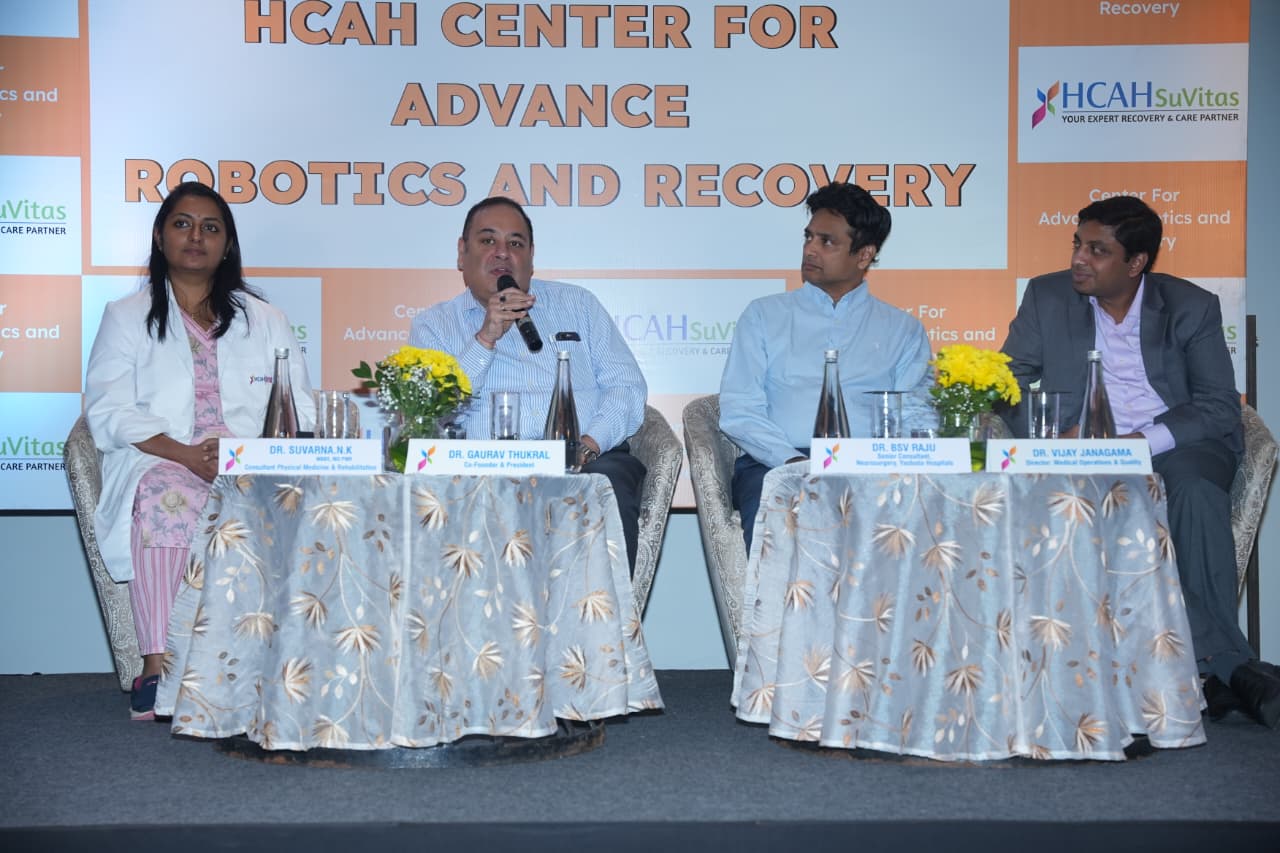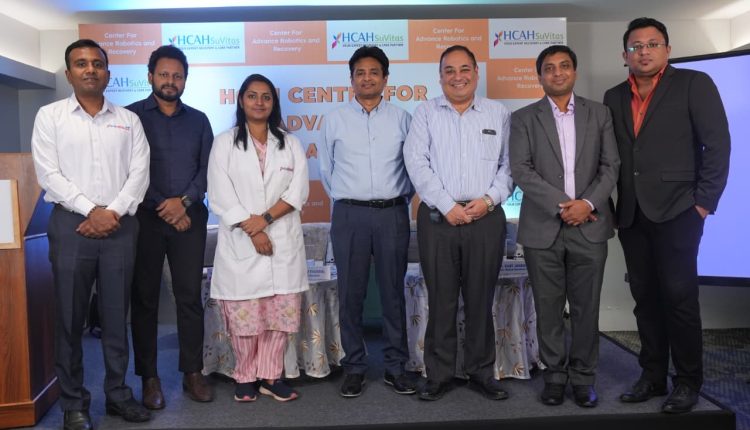Over 50 leading neurologists, neurosurgeons, and rehabilitation specialists came together at a scientific session in Hyderabad to discuss one of the most neglected yet critical aspects of healthcare — post-stroke rehabilitation. The consensus across the panel emphasized that India must integrate advanced robotic rehabilitation into its post-stroke care system to ensure the fastest and most affordable recovery for patients.
The scientific session titled ‘Advance Robotics in Rehab & Recovery’ brought to light a fundamental gap in India’s healthcare journey — the lack of structured rehabilitation once acute treatment ends. Stroke remains one of the leading causes of adult disability in the country, yet for most patients, medical intervention ends at hospital discharge. Experts emphasized that this is where the real battle for recovery begins.

“India’s healthcare system has mastered emergency care, but rehabilitation is where lives are truly rebuilt,” said Dr. BSV Raju, Senior Consultant Neuro Surgeon, Yashoda Hospital. “In stroke, every day counts. The faster a patient begins guided rehabilitation, the higher the chances of regaining movement, balance, and independence. Robotic rehabilitation adds precision and intensity to therapy, allowing thousands of targeted repetitions that drive neuroplasticity — the brain’s ability to rewire itself. That is how the fastest recovery happens.”
Experts highlighted that rehabilitation continues to be India’s “missing link” in healthcare. While hospitals save lives, recovery centres restore them. However, patients are often discharged directly home without professional guidance, delaying recovery and increasing dependency. Many families remain unaware that rehabilitation is not optional — it is the decisive phase that determines whether a stroke survivor returns to normal life or lives with lifelong disability.
Dr. Gaurav Thukral, Co-Founder & President, HCAH, said, “We recently launched Telangana’s most advanced robotic rehabilitation lab, equipped with AI-powered exoskeletons and motion-tracking systems. These technologies don’t replace therapists; they enhance their ability to deliver precise, measurable care. Patients can now start earlier, recover faster, and track real progress through data. Rehabilitation is no longer about waiting — it’s about activating recovery.”
He further added, “Early and structured rehabilitation is not only clinically effective but also economically sensible. Patients who start therapy early often recover faster, reducing hospital readmissions, caregiver fatigue, and long-term costs. Investing in rehabilitation is, in fact, saving in the long run.”
Experts agreed that India’s next healthcare leap will not come from more surgeries but from better recovery pathways. “Surgery saves life; rehabilitation gives it back. We need to make post-stroke rehab a standard part of care, not an afterthought,” Dr. Thukral added.
The discussion also shed light on systemic barriers — limited insurance coverage, shortage of trained physiatrists and therapists, and the absence of Physical Medicine & Rehabilitation (PMR) from the medical curriculum. These gaps, experts said, prevent India from building a culture of recovery.
Participants called for policy-level action to include rehabilitation in insurance schemes, hospital discharge protocols, and public health communication. They emphasized that recovery centres should become an extension of hospitals, ensuring that every patient transitions seamlessly from survival to functionality.
The event concluded with a shared commitment from attending clinicians to advance awareness about the role of technology in rehabilitation. The collective message was clear — the future of healthcare is not only about saving lives but restoring them. And the fastest, most affordable recovery after stroke begins with rehabilitation.


